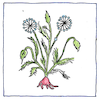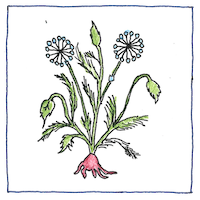Pedanius Dioscorides
medicine

|
Traditional medicine
Pedanius Dioscorides was a Greek surgeon who travelled with the Roman army. Wherever he went, he asked local people about their traditional remedies, and tried them out on the troops, recording the names and uses of about six hundred remedies, eventually included in his five-volume pharmacopeia that was copied, translated, and kept in continuous circulation for fifteen centuries.
Remedies
Cinnamon is good for coughs, dropsy, kidney diseases, and difficult urination. A decoction of cardamom is good for those who have coughs, sciatica, paralysis, hernias, convulsions, and griping, and it expels rectal worms. Gum Elemi Tree resin takes off scars in the eyes, helps with gum disease and toothache, and is given to the splenetic, epileptic, and asthmatic. For baldness, rub on the burnt skin of hedgehog with moist pitch. The flesh of mussels is effective applied to a person bitten by a dog. River crab, pounded raw and taken as a drink with an ass’s milk, helps snakebites and the bites of spiders and scorpions. Eating roasted brain of hare is good for the trembling that comes from fear and for teething in children. Take rhubarb root in a drink for gaseousness, weakness of the stomach, suffering, convulsions, spleen, liver ailments, inflammation in the kidneys, griping and disorders of the bladder and chest, matters related to hypochondria, afflictions around the womb, sciatica, spitting up blood, asthma, rickets, dysentery, abdominal cavity afflictions, flows of fevers, and bites from poisonous beasts. Seawater is good for disorders of the nerves, and chilblains before ulceration. Vinegar and salt, sipped and gargled, kills leeches, cleans dandruff, and cures ulcers on the scalp. Grime from gymnasium walls helps for abrasions, and for removing scaliness and ulcers.
Good advice
Whatever they say—old wives, old friends, scam artists, quacks, and TV evangelists— is good for a consideration. If you don’t know by now, then keep an open mind, and don’t fill it with rubbish. They say that time heals, but it can also make well-meant advice seem ridiculous.



Dioscorides, the original pharmacologist, incorporated observations from Galen and Krateuas, and, of course, received information from many people in places where he travelled; however, he is said to have clinically tested and verified everything before he published it.
See also in The book of science:
Readings in wikipedia:
Other readings: